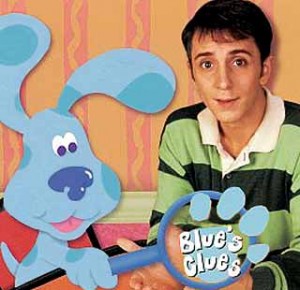 I went to the season’s first New York Public Schools Gifted and Talented information session on Monday night. Whatever I was supposed to get out of the meeting, I came away with this: the K-5 Gifted and Talented program seems like an almost complete sham, but I might still try to get my daughter into it.
I went to the season’s first New York Public Schools Gifted and Talented information session on Monday night. Whatever I was supposed to get out of the meeting, I came away with this: the K-5 Gifted and Talented program seems like an almost complete sham, but I might still try to get my daughter into it.
Several hundred parents and a handful of coughing kids filled the downstairs auditorium at Brandeis High School for almost two hours. As theater, it was atrocious: a starched woman with librarian glasses and an Edwardian collar reading the Gifted and Talented program’s website–verbatim at times–to a simultaneously bored and anxious crowd (the last open house I went to–for pre-K–was just as stiffly presented).
But it wasn’t the lack of entertainment value that angered me about last night. It was that the speakers could make no case for why Gifted and Talented is better than general education. The Gifted and Talented program seems to be defined only by its barriers to entry: you must score in the 90th percentile or higher to get into a district-wide program, and 97th percentile or higher to get into a citywide program. The test is, for a four-year-old, an alien battery of exams that lasts up to 90 minutes, administered by a stranger without a parent in the room. They are the booklet-based OLSAT (which although cheaper to administer, is far less natural than the observation-based Stanford-Binet test that NYC used to use) and the Bracken School Readiness Assessment.
Not only that, but they made it quite clear that there were no extra resources available to G&T classrooms, and that class size would, if anything, be even larger. “People tend to think that Gifted and Talented classes are smaller,” she said. “Au contraire.” (you can tell she’s gifted coz she speaks French!) Turns out the Teachers Union specifically allows for gifted classes to be larger than general education classes.
Nor could she point to any broad curriculum differences between general education and gifted and talented. That all depends on the teacher, she said, and besides, all levels are guided by the same statewide standards (blech).
She did announce that if we had concerns with the quality of our kid’s gifted and talented instruction, we should meet with the teacher. If a few meetings didn’t resolve the issue, then we could go up the chain. Actually, what she said was, “If after a few meetings you are still not satisfied, you may request a three-way.”
A three-way with the teacher isn’t really what I had in mind, but OK: I’m sure it’s backed by the latest research.
But seriously: what is K-5 Gifted and Talented about, then? If they have no extra funding, (potentially) larger class sizes, and are defined only by the fact that the students did well on this odd little exam, then the only people the programs really serves are the parents. It’s the parents who are such vain little strivers that they would get all excited about putting their child through a testing process to get them into a program with such illusory benefits.
Viewed more dimly, G&T is most successful at allowing well-heeled parents to feel good about their choice to send their children to public schools. Gifted & Talented means they won’t have to put darling Jayden in the unwashed hordes in general education.
Meanwhile, that’s a bit of a self-fulfilling prophecy, because G&T does take many of the kids of the parents who care enough about the richness of their children’s kindergarten experience to go through the test and segregate them out of regular classrooms. It diminishes the diversity, on many levels, in both sides of the school. And to that end, it’s no less dangerous than private schools are to the presumed mission of public education in this country: free and equal education for all.
And yet.
I think I will sign my daughter up for the test. This makes me a rank hypocrite in a lot of ways. Yes, I’m curious how she’ll do at concentrating for that long (it could go either way), but I don’t need that test to tell me that I have a bright and curious child. Nor would I get too excited if she didn’t pass, because I think this OLSAT is abitrary and incredibly narrow.
But if she scores well, I also think I might enroll her in Gifted and Talented, if the schools look good. And here’s the thing: I don’t even really know why. If I can shirk my own responsibility here for a moment, let me blame society: Like a lot of modern parents, I am strangely compelled by the idea that I should be lifting up my kids through my own effort, industriousness, and cleverness. Even when it’s just a nameplate, an empty signifier, like a Gifted Kindergarten class. We all want to be “good” parents, and good parents get their kids into Gifted and Talent. God help us all.


